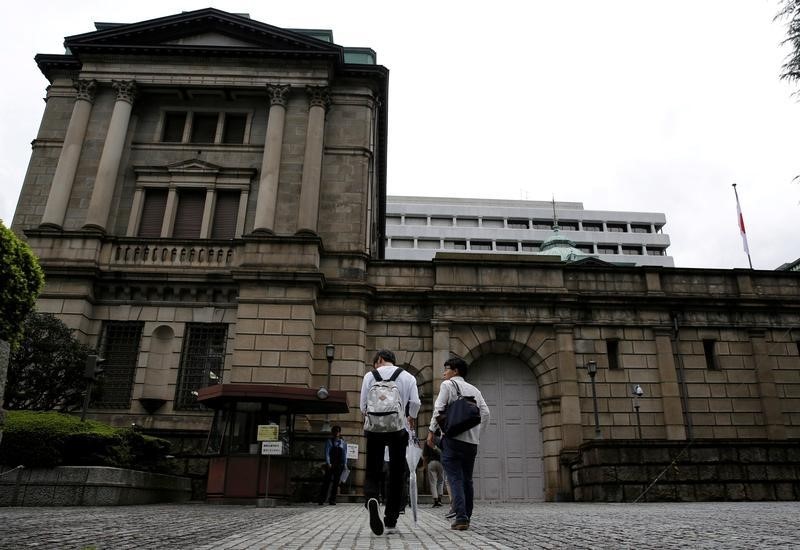By Leika Kihara
TOKYO (Reuters) - The Bank of Japan incurred a net loss in its half-year earnings for the first time in four years and saw its capital adequacy ratio slide, underscoring the strain its aggressive asset-buying program is putting on its massive balance sheet.
Profits from the central bank's government bond holdings in the April-September period also fell from a year ago, as its aggressive stimulus pushed down yields to ultra-low levels.
While the net loss was due largely to a stronger yen that eroded the value of its foreign asset holdings, the BOJ's earnings statement highlighted the damage the bank's radical monetary experiment is inflicting on its financial health.
The BOJ suffered a net loss of 200.2 billion yen ($1.8 billion) in the first half of fiscal 2016, posting red ink on a half-year basis for the first time in four years, its earnings statement showed on Monday. That compared with a 628.8 billion yen profit in the same period last year.
"It's important to ensure our financial state remains sound," a BOJ official told reporters at a briefing, though he said the bank does not see any immediate problem with its financial health.
Profits from its Japanese government bond (JGB) bond holdings such as through interest payments fell 1.7 percent to 628.4 billion yen, as the BOJ's ultra-loose policy pushed down yields across the curve.
The BOJ's bond holdings yielded a record low return of 0.332 percent in April-September, reflecting falling interest payments.
The bank's capital adequacy ratio fell to 8.0 percent as of end-September, down 0.05 point from March and matching the minimum level it deems preferable to restore financial health.
The BOJ is buying JGBs so the pace of its holdings increase at an annual pace of around 80 trillion yen under its massive stimulus program aimed at accelerating inflation to 2 percent.
But the central bank revamped its policy framework in September to make its asset-buying program better suited for a long-term battle to beat deflation, reflecting growing concerns its huge bond purchases were nearing a limit.
The BOJ's bond holdings rose 28.4 percent to 397.6 trillion yen in April-September from a year earlier, roughly a third of the size of Japan's total JGB market.
